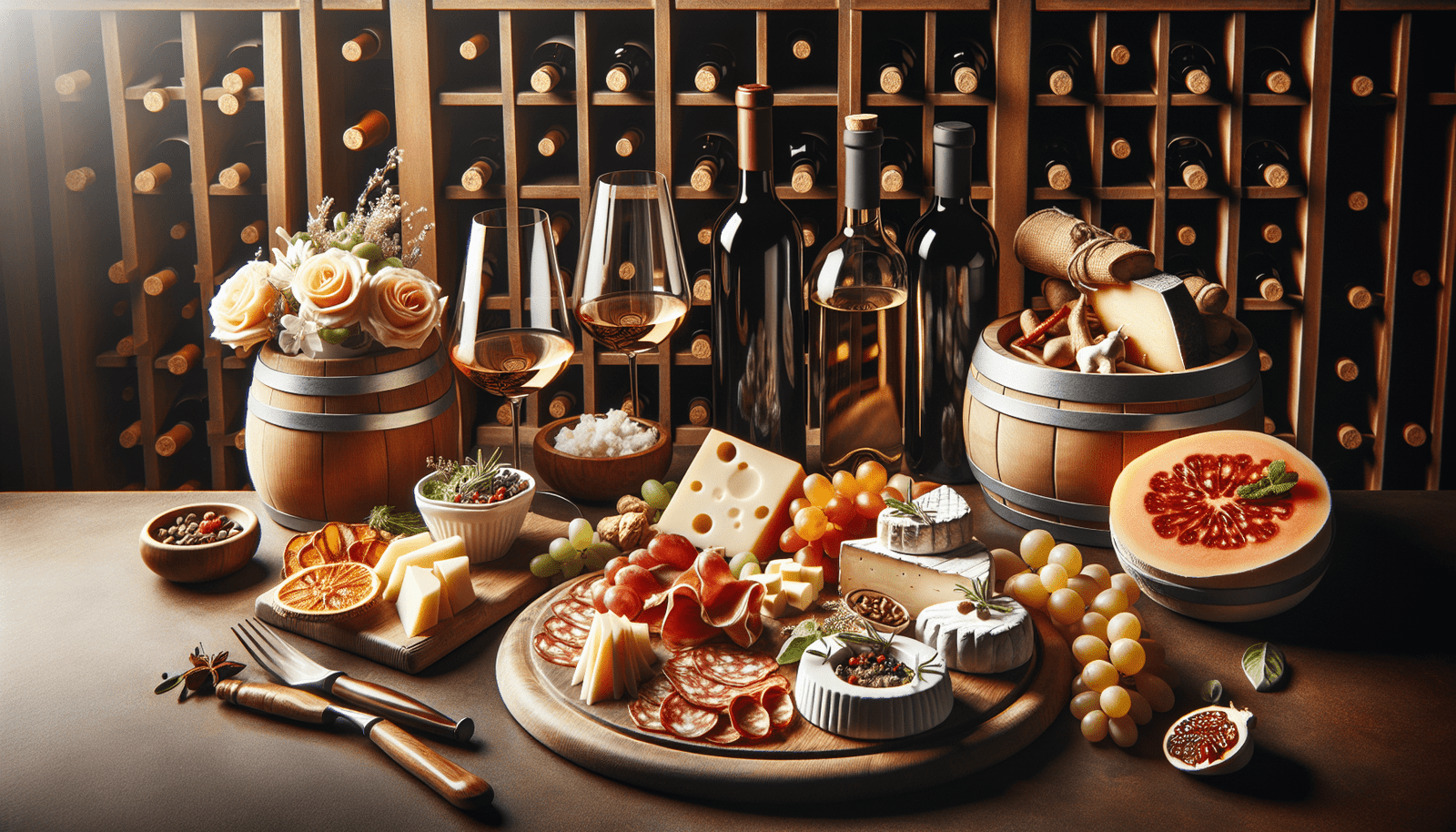In the realm of wine aficionados, the concept of a wine cellar often evokes images of rows upon rows of meticulously arranged bottles, aging to perfection. But have you ever wondered if a wine cellar can serve a purpose beyond the realm of wine storage? Is it possible to utilize that cool, dark space for other items? In this article, we explore the possibilities of storing more than just wine in a traditional wine cellar, discovering the untapped potential that lies within these temperature-controlled havens.
Can I Store Other Things Besides Wine In A Wine Cellar?
Overview of Wine Cellars
A wine cellar is a specially designed storage area that provides the ideal conditions for aging and storing wine. It typically maintains a consistent temperature and humidity level, which are critical for preserving the quality of wine over time. Wine cellars are often found in homes, restaurants, and wineries, and are equipped with racks or shelves to hold bottles of wine.
Temperature and Humidity Conditions
Maintaining the correct temperature and humidity conditions is crucial for the proper storage of wine. Generally, the ideal temperature range for wine storage is between 45°F (7°C) and 65°F (18°C). Fluctuations in temperature can accelerate the aging process and negatively impact the wine’s taste and aroma. Additionally, the humidity level inside a wine cellar should be around 60-70%, as lower humidity can cause corks to dry out and lead to oxidation, while higher humidity may result in mold growth.
Suitability of Other Items for Wine Cellars
While wine cellars are specifically designed for storing wine, it is possible to store other items within them. However, it is important to consider that wine cellars are optimized for wine storage conditions, and thus may not be suitable for all types of items. Items that are sensitive to temperature, humidity, and light exposure are more likely to be compatible with wine cellar storage. Examples of such items could include certain types of cheese, cigars, preserved meats, and high-quality chocolate.
Factors to Consider When Storing Other Items in a Wine Cellar
Before deciding to store other items in a wine cellar, there are several factors that need to be considered. Firstly, the compatibility of the item with the temperature and humidity conditions must be assessed. It is essential to ensure that the item will not be negatively affected by the specific environment within the wine cellar. Secondly, the potential impact of the item on the wine stored in the cellar should be evaluated. Some items, such as strong-smelling cheeses or tobacco products, may impart odors or flavors onto the wine bottles. Lastly, the quantity and size of the additional items should also be considered, as overcrowding the wine cellar can disturb the air circulation and compromise the storage conditions.
Alternatives to Storing Other Items in a Wine Cellar
If you have items that are not compatible with the conditions in a wine cellar or if you do not have access to a wine cellar, there are several alternatives for storing them. For temperature-sensitive items, such as cigars or high-quality chocolate, investing in a specialized storage unit or cabinet with adjustable temperature settings may be a suitable option. For certain food items, like cheeses or meats, a refrigerated cheese vault or a dedicated meat curing chamber would be more appropriate. It is crucial to select the storage solution that best meets the requirements of the specific items being stored to ensure their longevity and quality.
Legal Restrictions on Storing Other Items in a Wine Cellar
In some regions, there may be legal restrictions on storing items other than wine in a wine cellar. These regulations vary depending on local laws and may impose limitations on storing certain perishable items or hazardous materials. To avoid any legal issues or potential health risks, it is advisable to familiarize yourself with the relevant regulations and consult with local authorities if necessary. Ignoring these restrictions may result in penalties or compromise the safety of the stored items.
Tips for Storing Other Items in a Wine Cellar
If you decide to store other items in a wine cellar, there are some tips to consider to ensure optimal storage conditions. Firstly, it is advisable to keep these items separate from the wine bottles to prevent cross-contamination. Using airtight containers or specialized storage solutions for each item will help maintain their individual qualities. Secondly, regularly monitor the conditions inside the wine cellar to ensure they remain within the appropriate temperature and humidity ranges. Lastly, it is essential to conduct regular inspections and assessments of the stored items to identify any signs of spoilage or deterioration.
Potential Risks and Hazards
Storing other items in a wine cellar may pose several risks and hazards that need to be acknowledged. One of the significant risks is the potential impact on the wine itself. Certain items, such as strong-smelling cheeses or pungent foods, can introduce odors into the wine bottles, affecting their taste and quality. Additionally, the presence of non-wine items can obstruct the proper air circulation and create inconsistent storage conditions inside the cellar. This can lead to accelerated deterioration or spoilage of both the wine and the additional items stored. It is crucial to carefully assess these risks before deciding to store non-wine items in a wine cellar.
Conclusion
While wine cellars are primarily designed for the storage of wine, it is possible to store other items within them, provided they are compatible with the temperature, humidity, and light conditions. However, it is essential to consider the potential risks and hazards associated with storing non-wine items, such as cross-contamination or compromised storage conditions. If storing items other than wine, it is crucial to carefully evaluate their compatibility, monitor storage conditions, and adhere to any legal restrictions. Ultimately, the decision to store non-wine items in a wine cellar should be made based on an assessment of the specific requirements and potential impacts on both the stored items and the wine itself.



